Synthetic biology: the power of modified microbes
Microbes are the world’s most brilliant chemists, able to turn simple sugars and other compounds into a vast array of complex chemicals. Nowadays, scientists like Professor Ian Paulsen and his team at the ARC Centre of Excellence in Synthetic Biology in Australia are uncovering not just how these processes work, but how to modify them to get microbes to produce chemicals that no natural microbe makes. This ability opens up a virtually infinite array of possibilities that have the potential to save our environment and millions of lives.
TALK LIKE A SYNTHETIC BIOLOGIST
Metabolic pathway — a linked series of chemical reactions happening within a cell, typically led by proteins
Microbe/microorganism — a microscopic organism, such as bacteria or yeast
Synthetic biology — brings together multiple disciplines to design useful things from the building blocks of life, using genes to make new microbes with new abilities
What have microbes done for us? Microbes regulate the climate, help us digest the food we eat, and decompose our waste. They also brew our beer, make our bread rise, and ferment our cheese. In fact, despite their negative connotations with disease and infection, the majority of microbes are either beneficial or at least harmless to us. Yet, despite these many and varied uses, researchers believe they remain a mostly untapped resource for humanity.
Professor Ian Paulsen is the Director of the ARC Centre of Excellence in Synthetic Biology, a research centre that spans nine universities across Australia. “The general idea of synthetic biology is that we can engineer microbes to do things that naturally occurring microbes don’t do,” he says. “This might be producing high-value substances like biofuels, fertilisers or plastic precursors.” Ian’s team has a vision of building a ‘bio-based economy’ in Australia, focusing on ways to improve agriculture and waste processing through the creation of unique microbes.
How to engineer a microbe
Synthetic biology makes use of the rapidly progressing science of genetic engineering, which involves changing an organism’s genes so that it will express different proteins. Proteins are the ‘machinery’ that drive the creation and conversion of molecules within cells. “If we want to make a certain product, we’ll try and work out what metabolic pathway could lead to it, and then find genes from different organisms that can be combined to make that pathway,” explains Ian. “We then insert those genes into our microbe of choice and see what happens.”
Genes are complex things and there is a lot of trial-and-error involved to get these pathways working, but Ian’s team has made impressive progress already. “Each time we make changes, we test what is and isn’t successful, and use that data to help improve designs until we can successfully engineer microbes to produce the desired product,” he says.
No more cow burps
Ian is dedicated to ensuring that the work of his team has viable real-world applications. One significant example of this comes from a start-up company, Number 8 bio (www.number8.bio), set up by some of his team members, which focuses on reducing cows’ methane emissions. Like all animals, cows have communities of microbes living within their digestive system, which help with digestion but produce methane as a by-product. This is an issue because methane is a potent greenhouse gas, and cattle methane emissions are a significant contributor to climate change.
To address this, the researchers at Number 8 bio are engineering yeast strains that can be fed to cattle to supplement their digestive microbes and prevent the emission of methane. “This has strong environmental benefits and also benefits farmers because methane contains carbon that could otherwise be used by the cows to grow,” explains Ian. “For the same amount of feed, a cow will gain 20-30% more body weight – a real saving for farmers.”
The microbial village
Ian believes that the next step for synthetic biology lies in mimicking, in an industrial setting, how microbes interact in the natural world. “Currently, virtually all synthetic biology used in industry involves a single engineered microbial species,” he says. “In the real world, microbes live in complex communities where they are constantly competing and collaborating with one another.” Ian’s team is trying to engineer synthetic microbes that function together in a community with each microbe specialised for a particular task. For instance, engineering one microbe to use carbon dioxide as a feedstock and synthesise and secrete a sugar that a different microbe can be then use as a feedstock for growth. The carbon energy from that sugar can be used to build an industrial biochemical that the first microbe would not be able to produce.
Changing the world?
Modifying the genetic structure of organisms is no trivial task, and Ian is conscious of ensuring that ethical and societal considerations are taken into account. Synthetic biology has a range of potential impacts on society, both positive and negative.
Reference
https://doi.org/10.33424/FUTURUM366
For instance, engineering a microbe to make a compound that we currently source from plants grown on agricultural land has the potential benefit of producing the compound without losing valuable land, water and fertiliser. On the other hand, being able to produce the compound synthetically might threaten the livelihood of a farmer in a developing country.
“Our team includes social science and humanities researchers who look at the policies and implications of synthetic biology,” says Ian. “They have expertise in important areas such as bioethics and technology law.” Ian’s team is especially interested in complying with the Nagoya Protocol, a treaty involving many nations that sets out rules for the fair sharing of benefits arising from the use of genetic resources. Many medicines, for instance, are created using substances originally sourced from tropical species, so the communities that safeguard these species should also benefit from their use. “The protocol aims to protect the rights of Indigenous peoples and developing countries from which biological material is taken and profited from,” says Ian. “We are aiming to set a global standard for complying with the protocol when it comes to synthetic biology, by integrating humanities considerations within our development process from an early stage.”
 Professor Ian Paulsen
Professor Ian Paulsen
Director, ARC Centre of Excellence in Synthetic Biology, School of Natural Sciences, Macquarie University, Sydney, Australia
Field of research: Synthetic Biology
Research project: Researching and developing synthetic microbes for sustainable production of industrial biochemicals, fuels and plastics
Funders: Australian Research Council (ARC), NSW State Government
ABOUT SYNTHETIC BIOLOGY
Synthetic biology is a new but rapidly progressing field, and there is a lot of demand for people with relevant expertise.
Because of synthetic biology’s industrial applications, there is demand not only for researchers, but also those who have the skills to turn research outcomes into viable and scalable businesses. “We are training both the entrepreneurs who will form new companies, as well as the workforce that will staff and run these companies,” says Ian. “By the time a high school student reading this goes to university, there will be a full industry waiting for them, seeking researchers, technicians, administrators, business developers, and many more skilled workers.”
Only two years since its inception, the ARC Centre has already seen major successes. “The Centre has already led to the formation of three start-up companies that have raised $60 million in venture capital between them,” says Ian. Samsara Eco (www.samsaraeco.com), one of these companies, is using engineered enzymes to break down common plastics into constituent components that can be used to create brand new plastics. “You can use this process to infinitely recycle drinks bottles, for instance,” says Ian. “That means no more fossil fuels are needed for plastic production.”
The Centre has its sights set on a variety of future opportunities, focusing on those that can significantly better society. “For example, we’re engineering an entirely new yeast chromosome with genes from different organisms that would enable yeast to produce oils for human consumption,” says Ian. “This would mean that oils such as palm oil, which results in massive deforestation of tropical rainforests, could instead be made in a more environmentally sustainable manner by yeast fermentation – analogous to how we currently make beer and wine.”
Pathway from school to synthetic biologist
Biomolecular science forms the knowledge foundation of synthetic biology. Sasha recommends taking biology
and chemistry at college/post-16, as well as learning computational skills. At university, courses or modules in molecular biology or biochemistry will be beneficial.
EXPLORE A CAREER IN SYNTHETIC BIOLOGY
• More information about synthetic biology and associated careers can be found at www.coesb.com.au
• Macquarie University has an award winning Professional and Community Engagement (PACE) programme, which provides undergraduate students with industry-valued practical experience in running experiments and working with experienced lab researchers. Learn more.
• Synthetic Biology Australasia is a community of scientists sharing knowledge and experience in synthetic biology. Its website also points towards opportunities for students.
• Synthetic biology is a rapidly emerging field and demand for experts and practitioners is growing. As a reference point, Payscale says the average molecular biologist salary in Australia is around AU$100,000.
Meet some of the team
Fields of research: Microbiology, Molecular Biology
Funders: Australian Research Council (ARC), Horticulture Innovation
I have always cared about the environment and been curious about what organisms are found where and why. Microbes often get bad publicity, but this is starting to change and there are so many helpful, weird and wacky microbes out there that we are just beginning to learn about.
I did a basic science degree, covering plant and animal biology, ecology and molecular biology. Since my undergraduate days, the advances in this field have continued to speed up, with DNA sequencing and synthesis technologies meaning we can now answer all kinds of fundamental and important biology questions.
My research focuses on plastics in the ocean. We researched the impact of the chemicals that leach out from these plastics on photosynthetic marine plankton and found that almost all of these organisms are negatively affected by exposure to these chemicals. However, other groups of bacteria could tolerate exposure and, in some cases, even grow better – maybe using these chemicals within their metabolism. This suggests there are likely to be ‘winners and losers’ among marine microbes in areas of ocean with a lot of plastic pollution.
I have worked with so many amazing people over my career. It is great to have a job where you are learning new and interesting things all the time, and I also enjoy having a mix of lab and computer work.
Sasha’s top tip
Think about what you are most passionate about contributing to. There are so many questions out there to answer and plenty of different ways for biomolecular research to contribute positively to human, animal, plant and environmental health. What will you find rewarding?
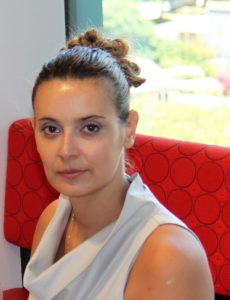
Professor Aleksandra Filipovksa
Director, ARC Centre of Excellence in Synthetic Biology
Fields of research: Synthetic Biology, Medical Research
Funders: Australian Research Council (ARC), National Health & Medical Research Council, Mito Foundation, Cancer Council of WA, WA Department of Health
My role is to lead and support my research team, and design and carry out innovative experiments. My focus is on the design of tools to regulate gene expression and applying these to different living systems to improve their functions and energy metabolism.
Scientific research is full of serendipitous moments that have led to unexpected discoveries and revealed new aspects of cell function. There are times when research can be very slow, but patience and perseverance inevitably lead to exciting new discoveries. I am motivated by the ability to make new discoveries that no one else has made previously.
I am proud of finding out how specific genes work and designing new methods to study their function. In the future, I want to design new and exciting features of cell function that provide hope for cures for devastating and incurable diseases.
Science is the most rewarding career, filled with travel, exchanging ideas, meeting like-minded people, and pushing the boundaries of imagination. Synthetic biology is a field that is rapidly expanding to provide new hope for many of today’s challenges including improved health, green energy and climate change. It is well worth investing in and pursuing.
Aleksandra’s top tip
Everyone should take their own path. Your personal journey will make your contributions to scientific discoveries unique and distinctive.
Fields of research: Molecular Sciences, Bacterial Genomics
Funders: Australian Research Council (ARC), National Health & Medical Research Council, US Department of Defence
I chose to study molecular biology and genetics for my undergraduate degree because I thought that DNA was super cool – it’s the building block of life! Then, I specialised in microbiology because I was blown away by the idea of this invisible world of microbes that is all around us.
Working overseas in diverse work environments has had a major positive impact on me as a scientist. From well-resourced pharmaceutical companies in the UK and USA, to low-resourced hospital labs in Malawi, I learned how to think about how to apply my research to benefit patients, and to make sure we’re working on problems that will help the world.
We do everything from genetic sequencing to classic microbiology, to bioinformatics. This means we can take a hypothesis, such as a potential new antibiotic, from the basic discovery stages up to testing on an animal model, from which it can be translated into drugs for human use.
We apply synthetic biology approaches to plastic degradation. We are finding genes that code for enzymes that allow microbes to break down plastics and inserting them into synthetic microbes. This has allowed us to produce a bacterial ‘hyperdegrader’ that breaks down plastic rapidly.
I would like to build a start-up company of my own in the near future. It would tackle the mounting problem of plastic waste using our synthetic biology findings, scaling our synthetic microbes to tackle anything from individual household plastic waste through to breaking down landfill.
Amy’s top tips
Get all the experience you can. For instance, volunteer in labs by emailing the group leaders from research papers you think are cool. Have confidence that you can do whatever you set your mind to, work with good and positive people, and set yourself ambitious goals to change the world!
Do you have a question for Ian, Sasha, Aleksandra or Amy?
Write it in the comments box below and Ian, Sasha, Aleksandra or Amy will get back to you. (Remember, researchers are very busy people, so you may have to wait a few days.)

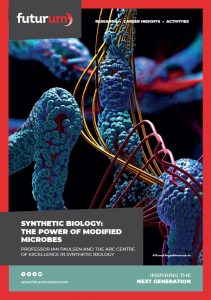
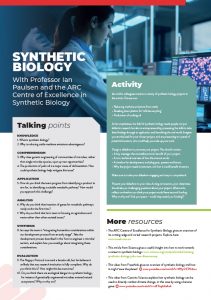
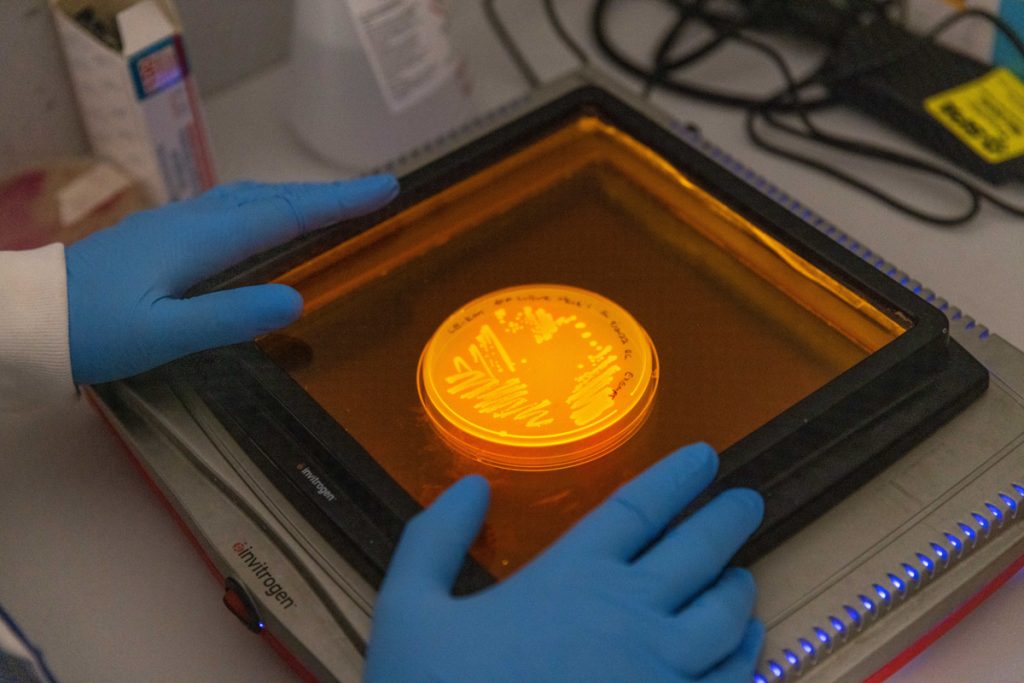
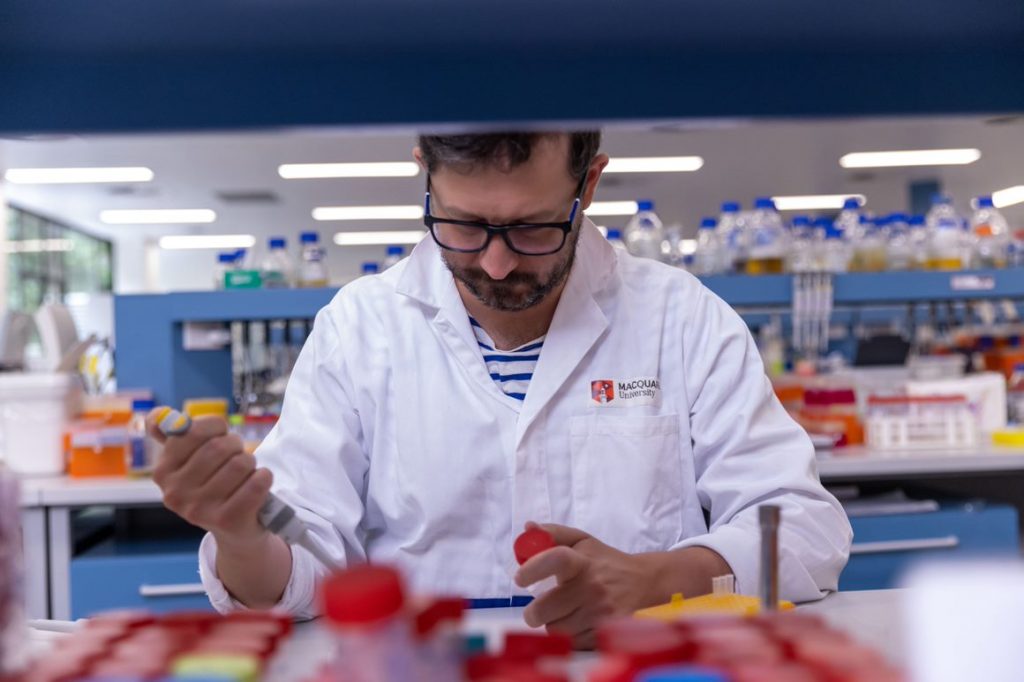
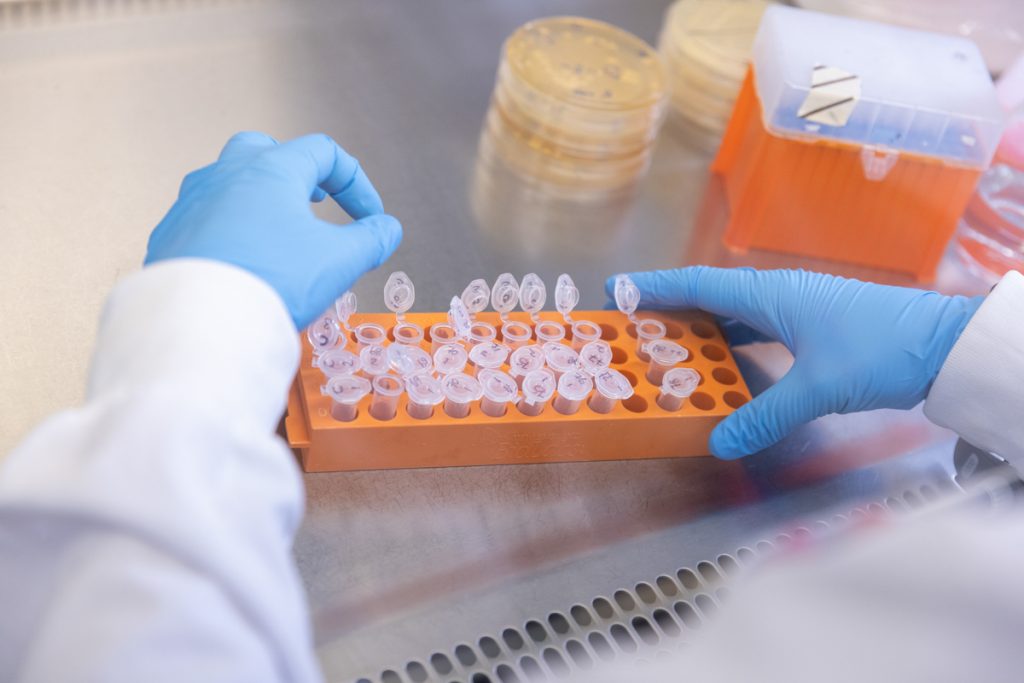
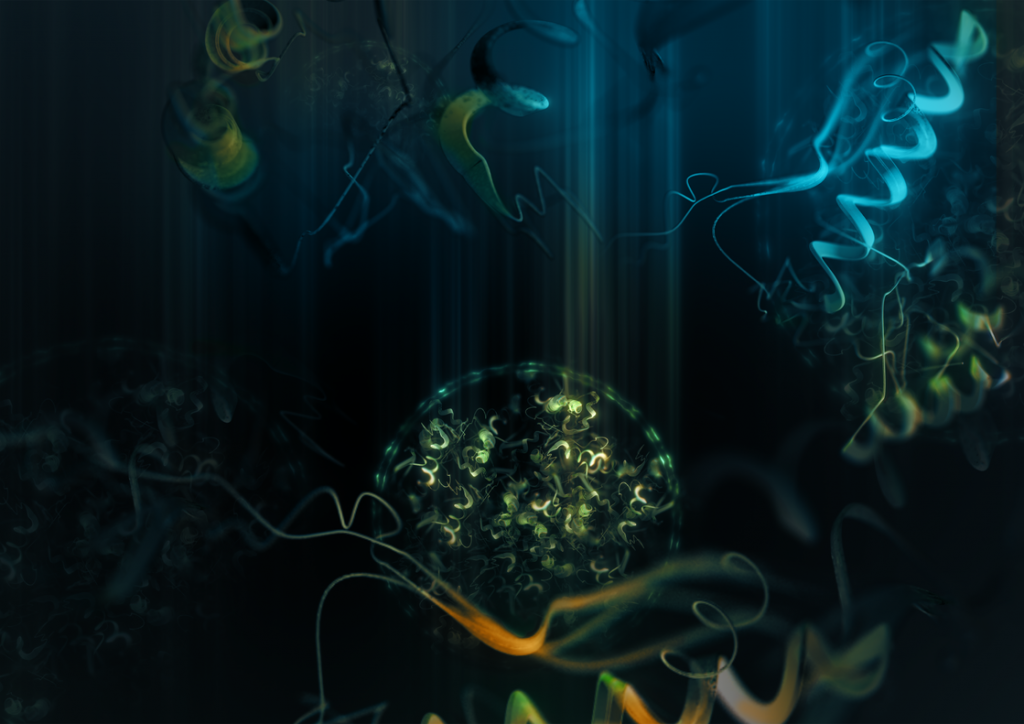


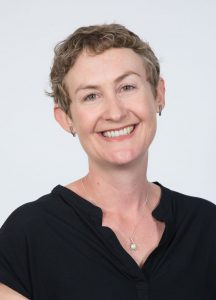
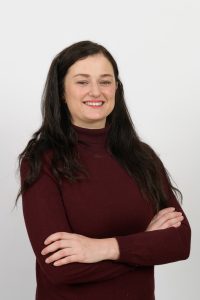
Would Sasha, Aleksandra or Amy be interested in calling into my molecular DNA technology class? I am an Associate Professor in Biotechnology in our new Biotechnology program at Wake Technical Community College. we could use Teams or Zoom to call into my class held Tuesdays through Thursdays from 8:30 to 10:15. we are the largest Community College in NC.